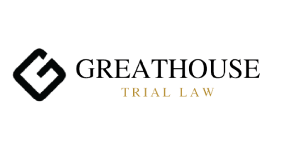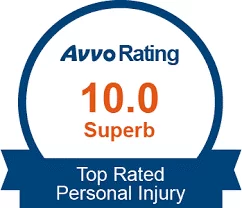If you’ve ever been to a trampoline park, theme park, sporting event, or recreational event, it’s likely that you signed a waiver or had a waiver expressly written in the purchase of the ticket. Businesses are increasingly using releases of liability to avoid responsibility for potential damages caused by their equipment or conduct. However, if you’re injured after signing a waiver, you may still be able to receive compensation. Here is what to do if you’ve been injured after signing a waiver.
What is a Waiver?
A waiver is a voluntary relinquishment or surrender of a known right or privilege. This definition means that when you sign a waiver, you willingly and knowingly give away your right to hold the other party liable for any injuries. A waiver can also go by many names, included but not limited to:
- Waiver of rights
- Waiver of liability
- Release of liability
- Pre-injury release
- Assumption of risk
- Indemnity agreement
- Agreement to hold harmless
- Assumption agreement
- Exculpatory agreement
To see what a waiver would look like in practice, let’s use Walt Disney World as an example. When you visit their website, you see three banners at the top. The first banner indicates a change in their face mask requirement. The second involves some disclaimers about the parks. The third offers a warning for the COVID-19 pandemic, with a button leading to more information. When you click on the third banner to see more details, you arrive at their Coronavirus strategy, with a warning that functions as a waiver. This waiver states:
“An inherent risk of exposure to COVID-19 exists in any public place where people are present. COVID-19 is an extremely contagious disease that can lead to severe illness and death. According to the Centers for Disease Control and Prevention, senior citizens and Guests with underlying medical conditions are especially vulnerable.
By visiting Walt Disney World Resort, you voluntarily assume all risks related to exposure to COVID-19.”
This waiver tells guests that if they buy a ticket to Disney World, they give up the right to sue Disney if they are exposed to COVID-19 during their visit. The release of liability explains the risks and puts the liability of COVID-19 on the guest.
When you sign a waiver, you consent to take on the risk of the activity. That activity could be going to the gym, visiting a theme park, going skydiving, or doing anything with risks. By signing a waiver, you agree not to sue those in charge if you get injured during the activity, whatever that activity may be. But what happens if you’re injured after you sign a waiver?
Lawsuits & Waivers
In some situations, you can still file a lawsuit even if you signed a waiver, especially in cases where the release of liability isn’t enforceable. For a waiver to be enforceable in Georgia, the release must follow these rules:
- The waiver must be in writing.
- The waiver must be clearly worded and unambiguous in explaining the risks associated with an activity.
- The waiver must be prominent and not misleading.
- An adult must voluntarily sign the waiver.
- The waiver cannot protect the company against gross negligence or recklessness.
In addition to those five points, waivers may not be enforceable in other situations, like if an injury occurred from an activity that is separate from what is explicitly covered in the waiver. Let’s use scuba diving as an example. When you go scuba diving, you sign a waiver that you will not hold the company accountable for any injuries while scuba diving. However, suppose an injury occurs on the boat ride to the diving location. In that case, you could hold the company responsible because the waiver did not include the risks of the boat ride.
A waiver may also be unenforceable if it violates public policy. If the terms of the waiver potentially jeopardize public safety, that waiver would be ruled invalid and unenforceable. In Georgia, waivers are unenforceable when they apply to:
- The construction or maintenance of a building
- Landlords attempting to protect themselves from liability for tenant accidents or injuries in leasing agreements
- Medical professionals
Call an Attorney
If you’ve been injured after signing a waiver, calling an attorney is the best way to ensure that you get the compensation you deserve. Figuring out whether or not a waiver is enforceable can be complicated, and an experienced personal injury can help you understand your rights. Here at Greathouse Trial Law, we want to help you understand your rights.
Contact us today at 678-310-2827 or complete our online form for your free case evaluation. We aim to serve Atlanta’s great people and give a voice to the voiceless.
Copyright© 2022. Greathouse Trial Law. All Rights Reserved
The information in this blog post (“post”) is provided for general informational purposes only. It may not reflect the current law in your jurisdiction. No information contained in this post should be construed as legal advice from the individual author or the law firm, nor is it intended to be a substitute for legal counsel on any subject matter. No reader of this post should act or refrain from acting based on any information included in or accessible through this post without seeking the appropriate legal or other professional advice on the particular facts and circumstances at issue from a lawyer licensed in the recipient’s state, country or other applicable licensing jurisdiction.
Greathouse Trial Law
260 Peachtree Street NW Suite 803
Atlanta, GA 30303
(678) 310-2827
https://atltriallaw.com/


